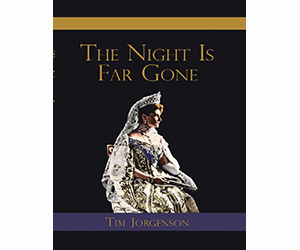Latexo, Texas became the third city this month to declare itself a Sanctuary for the Unborn and vote to ban the killing of unborn babies in abortions.
On Monday, the city council voted 4-0 to pass the pro-life ordinance, joining 22 other cities across Texas.
The Sanctuary for the Unborn ordinance recognizes that unborn babies are valuable human beings who deserve to be protected under the law. It prohibits abortions within city limits and prevents abortion businesses from opening there. It also penalizes abortion practitioners for aborting unborn babies, but it does not penalize women who seek or have abortions.
In a statement to LifeNews, Councilman Harvey Bruner encouraged other cities to take action to protect unborn babies as well.
“I’m glad to see this movement going on, and I’m glad to be a part of this,” Bruner said. “I want this to spread across the state!”
Pastor Randy Redkey of Latexo Baptist Church encouraged the city council to pass the ordinance. After the vote Monday, he praised local leaders for taking a stand for life.
LifeNews depends on the support of readers like you to combat the pro-abortion media. Please donate now.
“I am very excited my city of Latexo is now a sanctuary city for the unborn,” Redkey said in a statement to LifeNews. “I know that God is pleased our elected officials have stood up for life. May God greatly bless our city because we have been faithful to him on this issue.”
Two other cities, Murchison and Gorman, also passed Sanctuary for the Unborn ordinances this month.
And pro-life leaders with Texas Right to Life and Right to Life of East Texas said even more cities are considering action this spring.
“In a world where the Biden Administration is seeking to expand abortion access, cities like Latexo and Murchison and Gorman are boldly standing up and saying, ‘Not here you aren’t. No babies will be murdered by abortion …’” said Mark Lee Dickson, of East Texas Right to Life.
Dickson said state lawmakers also are working to strengthen support for these cities’ pro-life efforts through the Texas Heartbeat Act, which would prohibit abortions on unborn babies once their heartbeat is detectable.
Language in the bill states that the act “does not create or recognize a right to abortion before a fetal heartbeat is detected” and does not “restrict a political subdivision from regulating or prohibiting abortion in a manner that is at least as stringent as the laws of this state.”
Dickson said this language in the bill would increase support under state law for cities like Latexo that vote to protect unborn babies.
The other Texas cities that have passed pro-life ordinances include Carbon, Grapeland, New Home, East Mountain, Whiteface, Wells, Big Spring, Rusk, Waskom, Naples, Joaquin, Tenaha, Gilmer and Westbrook. Omaha also passed an ordinance but later retracted it and passed a non-enforceable resolution instead.
Residents of Lubbock also are trying to pass a Sanctuary for the Unborn ordinance after Planned Parenthood opened a new abortion facility there last year. In November, the Lubbock City Council rejected the ordinance, but because of a citizen-led petition, residents will have the opportunity to approve the ordinance on the May election ballot.
Each ordinance includes a public enforcement mechanism and a private enforcement mechanism. The public enforcement mechanism establishes fines against the abortionist and anyone who helps with an abortion within city limits. However, it cannot be enforced until Roe v. Wade is overturned.
However, the private enforcement mechanism is immediate. It makes abortionists and those who help them “liable in tort to a surviving relative of the aborted unborn child, including the unborn child’s mother, father, grandparents, siblings or half-siblings,” meaning the abortionist can be sued for aborting the unborn child.
Abortion activists have tried to stop the Sanctuary for the Unborn effort, but, in May, the American Civil Liberties Union dropped its lawsuit challenging seven of the cities’ ordinances.








